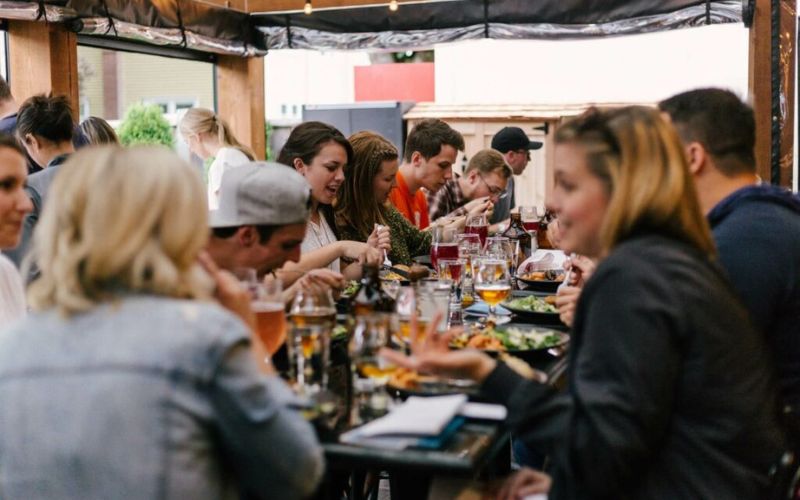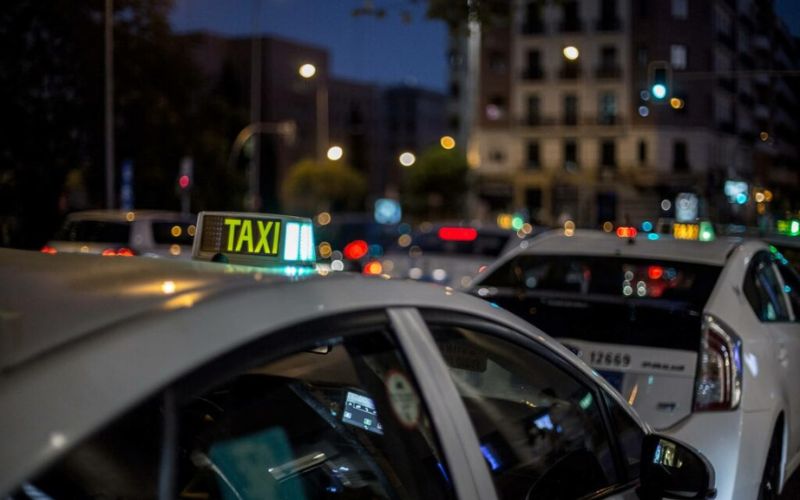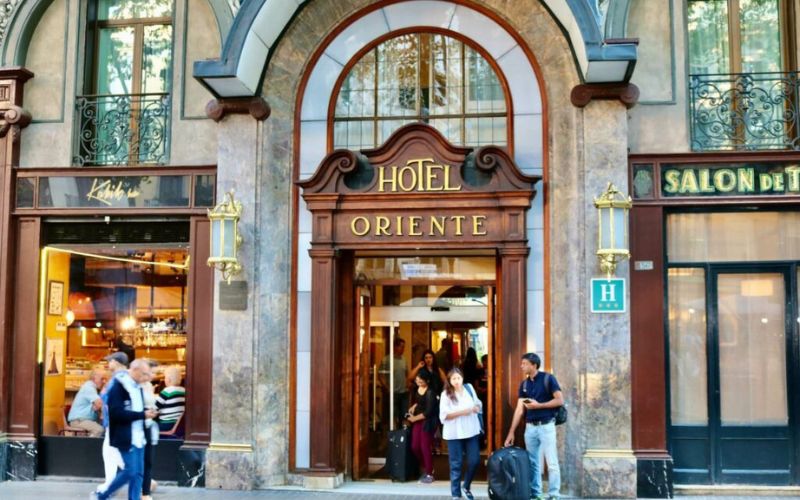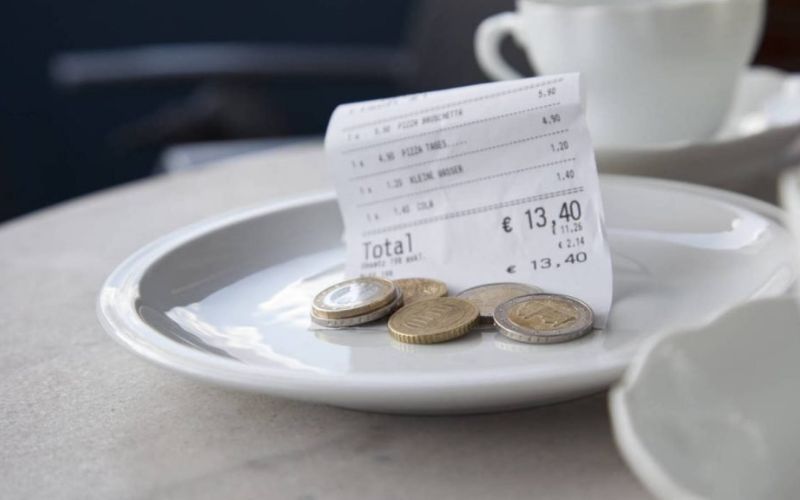Tipping is
governed and required in several nations across the world. How does it operate
in Spain, though? And how much money should be left as a tip? These and other queries
are addressed in this article.
Many of us
have had the pleasure of a wonderful evening out with excellent food and
beverages. The embarrassing moment when the bill arrives then follows. Who is
funding what? What exactly did we order? And, hold on, how much are tips in
Spain?
Well,
tipping isn't really a black-and-white issue in the Spanish service industry.
Tipping, which often adds 15% to 20% to the bill, is practically mandated in
certain nations, including the US.
The aim of
this funding is to raise the service workers' already low wages. Tipping
customs are therefore simple enough in the US, but what about in Spain? Is it
required? Or does it rely on how well the waiters provide service?
Spain tipping customs
Tipping is
not particularly widespread and completely voluntary in Spain. At pubs and
cafés, you might see patrons leaving quarters, and ultimately, you might
witness someone tipping at a fancy pricey restaurant. However, aside from
tourists, you won't see many people leaving tips.

Your tip
will be really appreciated if you regularly tip and believe that the
circumstance calls for it.
Don't feel
obligated to do it, though. This is especially true if the service is subpar or
not all that great.
Related: Countries where you should always tip
When should you leave a
tip?
Since there
isn't a universal agreement on how much outstanding service deserves to be
rewarded by way of tipping, it is challenging to establish a uniform norm for
tipping. There are variations in almost every nation when it comes to tipping
laws and customary percentages.
But even if
Spain's tipping customs aren't always apparent, Spanish speakers may easily
identify its etymological roots. The Greek verb pinó, which means to drink, is
the origin of the Spanish term "propina," which implies tip.
After the
prefix "pro-" was added, this became propinó. When seen as a whole,
the term connotes the gesture of extending an arm and providing a drink to a
stranger.
The Latin
phrase propinare, the forerunner of the Spanish word propina, was created as
the word continued to develop. Nowadays, a propina is a modest tip given in
appreciation for good service, according to the Spanish Royal Academy's
vocabulary.
How do employees give and
receive tips?
Businesses
in Spain don't adhere to a set protocol because tipping is not regulated. There
are typically two methods to divide up tips:
The practice
of pooling, where gratuities are distributed equally among all staff members,
including waiters and kitchen personnel, is widespread in small restaurants.
In bigger
restaurants with a variety of specialized positions (waiters, cooks,
bartenders, hostesses, etc.), sharing by percentage is increasingly common.
Given that
tips have a significant impact on employees' basic salary, tipping is sometimes
a touchy subject among restaurant personnel. Some waiters don't like having to
split the tips with other employees since they believe that their excellent
service in the dining room is what earned them.
The kitchen
crew, on the other hand, could contend that even the greatest service cannot
make up for subpar cuisine.
Is it possible to tip when
using a credit card?
Yes, you may
still tip while using a credit or debit card, to give you the quick answer.
Additionally, there are a number of benefits for both you and the company:
- The amount need
not be calculated. The tip is automatically determined by the payment terminal.
The cost is increased by the gratuity %.
- It is useful and
practical. You don't have to make sure you have cash on you to leave a tip.
- It's a
trustworthy record for the company. Owners have a reliable way to verify the
additional funds amassed for the gratuity pool.
It is
simpler to divide the funds among the personnel and prevent any from being
"lost." Coins and banknotes can be misplaced while dealing with cash,
but this is impossible with electronic payments.
Spain restaurant tipping
customs
The majority
of sit-down restaurants do not need gratuities. Many Spaniards would, if
anything, just leave the change the wait staff gives them after paying the
bill, much as at smaller restaurants.

If your
dinner costs, let's say, 19 euros and you want to pay with a twenty, feel free
to leave the additional coin as a tip—or don't. You are quite free to do this,
and the wait staff won't take offense if they notice you keeping your change.
Cafés and bars
In general,
tipping will be less frequent in settings that are more casual. In Spain,
almost no one tips while ordering a coffee or a beer, especially if that's all
you get.
If they also
purchase food, such as a croissant or a tapa, some locals may choose to just
leave the money they get as change, but many will do so without a second
thought.
Cabs and Taxis
In general,
taxi drivers in Spain appreciate gratuities but do not depend on them.
The majority
of Spaniards will, at most, round up to the next euro and pay the driver that
amount. However, a lot of individuals continue to tip their cab drivers exactly
what is indicated on the meter, which is also totally fine.
When a
cabbie provides an extra service, like assisting in carrying baggage from the
taxi into a hotel, some Spaniards will pay their drivers more. However, even in
this instance, the total gratuity is almost never greater than one euro.
Private motorists
It is
acceptable to pay €10 for airport shuttles. I see that individuals would
typically pay a chauffeur at least €20 for a 4-hour session. The more you
donate, the longer the tour was, and the more content you were with the driver.
Transportation
for tourists Rickshaws, carriages, and similar vehicles. There isn't much need
to tip because you paid for the journey, but you can offer them a few euros.

Instead,
gratuities are not expected when using public transit vehicles like buses,
cable cars, or funiculars. Regarding boat journeys, a euro tip per person is
appropriate if the personnel helped you in any way or provided information.
It won't be
necessary if just transportation was offered; but, if a private boat was used,
in which case the person should be treated as a private driver.
Tip travel guides
As a
freelancer with an unpredictable monthly income, your tour guide would probably
appreciate whatever tip you decide to give them. In general, you should tip
more when your party is smaller.
And please,
please refrain from joining one of the countless free excursions that are
offered across the major cities' streets.
Example: You
pay 95€ for a tour of Spanish food, and you tip the guide anything from 5€ to
20€ since you appreciate her explanations and passion.
Museum or site-specific
guides
Usually,
guides are not given tips if you join one of their tours while you are at a
museum or other location.
Some
websites forbid the guides from accepting them, but if they do and you want to
thank the guide for a job well done, one euro per person is appropriate.
private tour operators
As a private
tour guide, I find this to be a problem. Here are some straightforward
justifications: While it is customary to tip group tour guides one euro per
participant, in the case of private tours, tips are often given per tour, not
per person. For a standard 4-hour session, the typical tip ranges from €20 to
€50, but when the day has been longer or we have worked together for several
days, we frequently receive greater gratuities.
Gratuities in Spanish
hotels
In Spain,
porterage is not as prevalent as it is, say, in Anglo-Saxon nations. Therefore,
unless you are staying in a 5-star hotel, you won't often find anyone assigned
to assist with your baggage.
You can give
him a gratuity of up to 5€ if someone does carry your baggage from your car or
lobby to your room.
You can give
the person who delivers your food or beverages a gratuity if you order
something from the room service menu. In this instance, one euro is more than
enough for beverages, and two euros is a fair price for any additional meals.
You may set
aside a handful of euro coins for your chambermaid at the conclusion of your
stay if you want to tip her. But keep in mind that it is not at all anticipated
in Spain.
Bellmen
One to two
euros or dollars for each piece of luggage will satisfy them. These tipping
values are probably pretty global and apply to Spain as well.
Cleaning services
In 4 to 5-star
hotels, one euro per night is customary; however, the more costly your room is
in a 5-star hotel, the more generous you should be.

In-room dining
Think of it
like the deliverymen we previously described. For a typical order, one euro is
appropriate.
Receptionists and
concierges
Giving the
concierge a tip at the conclusion of your stay is kind if you worked with them
to make reservations for restaurants, tours, and other requests. same if you
received an unanticipated upgrade.
The majority
of individuals round up their bills. Or perhaps offer them a modest box of
chocolates that you can get for cheaper at a grocery store nearby. Or give them
a tiny gift that comes from your native nation.
Spa and Resort Staff
Staff in
resorts and spas are frequently well-trained and compensated, as is the case
with many of the professionals in the aforementioned service sector. Tipping is
not required, but if you'd like to, you may leave about 10% of the entire
amount.
How much should a delivery
worker be given in tips? Which services merit a gratuity?
In addition
to the restaurant business, tipping is typical in a number of other
occupations, including those of drivers, tour guides, hotel employees, and home
delivery personnel.
Tipping
guidelines are particularly hazy in the case of delivery personnel. But this
sort of service is getting more popular as a result of the growth of delivery
applications. Similar to the restaurant business, there is an unwritten
convention that the gratuity should be roughly 10% of the order total.
The tip can
be included as an additional in the delivery app where you made your purchase
or donated in cash.
Spain's nightclub tipping
customs
Clubbing is
a well-liked pastime in Spain because of the country's vibrant nightlife. In
discos or nightclubs, tips are often not expected. However, feel free to give a
modest tip of €1-2 if the bartender prepares something unique or if the server
goes above and beyond to assist you.

fast food
In fast food
restaurants where you bring your own food to the table and are expected to wipe
the table after you finish eating, there is no tipping in Spain. However, if
the fast food establishment is a sit-down one and there are servers at the
tables (as at Hard Rock Cafe), then regard it as a conventional dining
establishment.
Conclusion
Don't worry
if you frequently lack the money but still want to appreciate the waiter's work.
Use our
electronic tipping software for servers for cashless tipping to conveniently
keep track of tips. You will benefit from a digital tipping app's ease.
This
software that accepts payments other than cash allows you to tip. The good news
is that you can use this tip software on both iPhones and Android smartphones,
regardless of the phone's operating system.